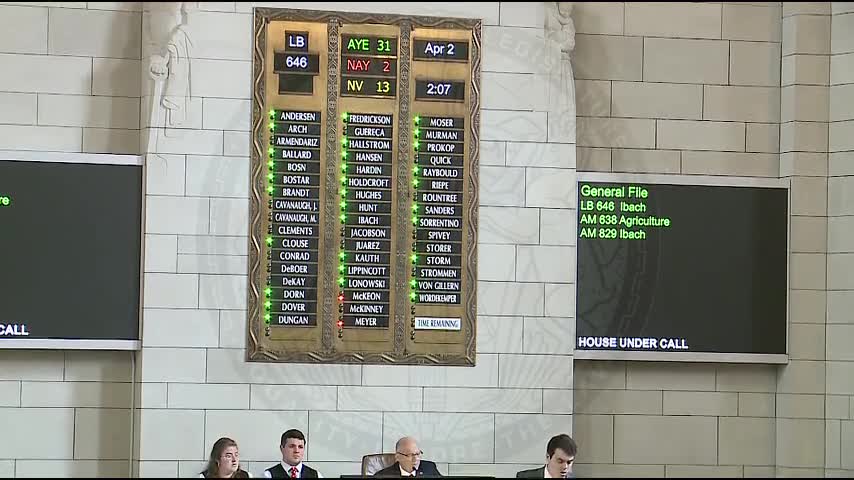Article not found
This article is no longer available. But don't worry—we've gathered other articles that discuss the same topic.
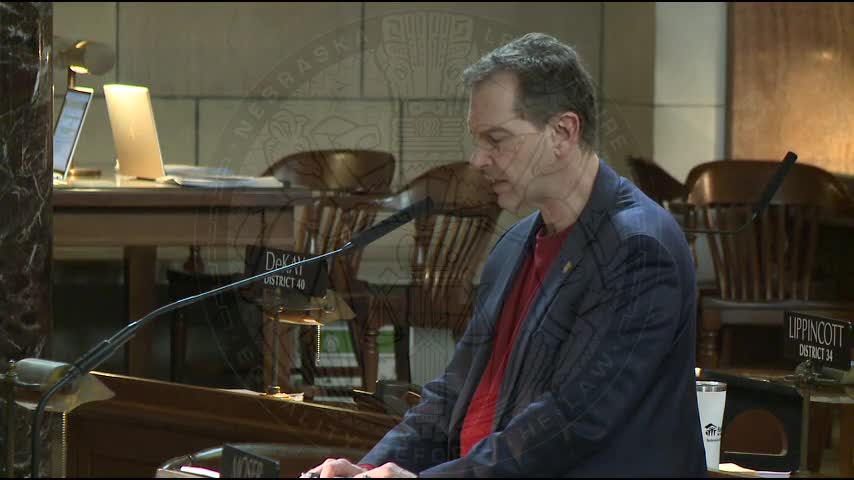
Senate advances health‑care package to expand coverage, ease scope‑of‑practice rules and shore up rural pipeline
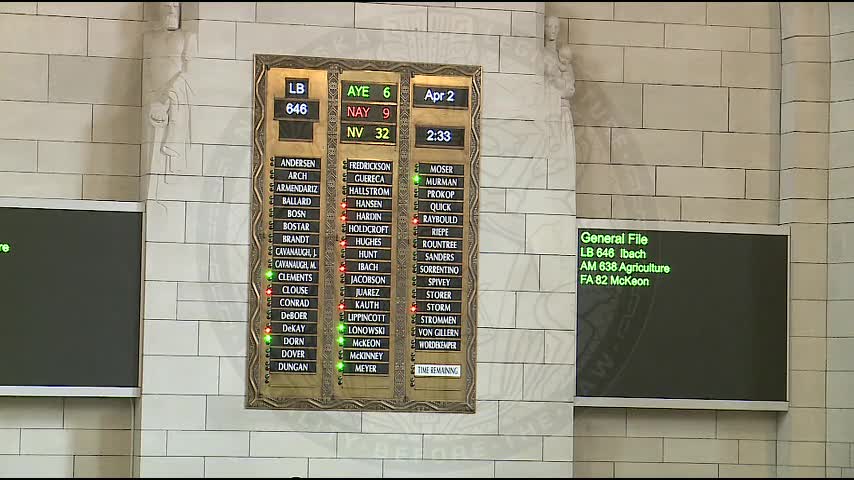
Senate adopts tighter rules for Medicaid managed‑care contractors and adds ambulance reimbursement change
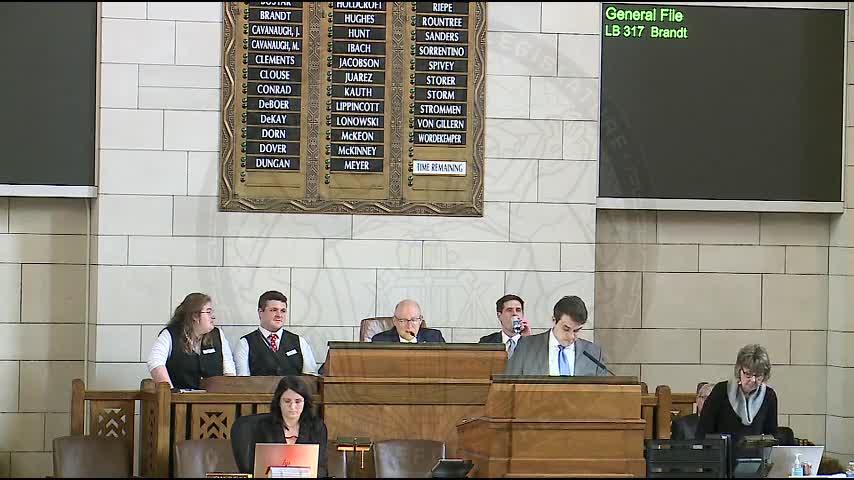
Legislature advances bill to merge natural‑resources and environment agencies despite stakeholder opposition
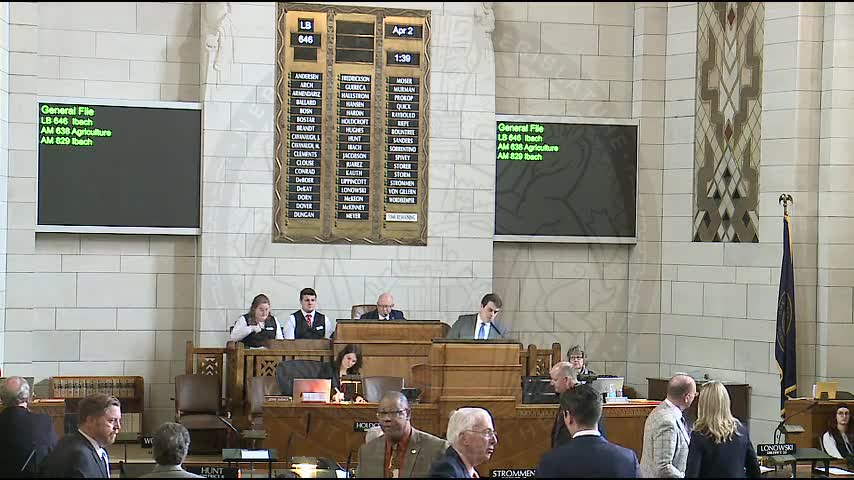
Nebraska Legislature advances overhaul of brand-inspection funding after hours of debate
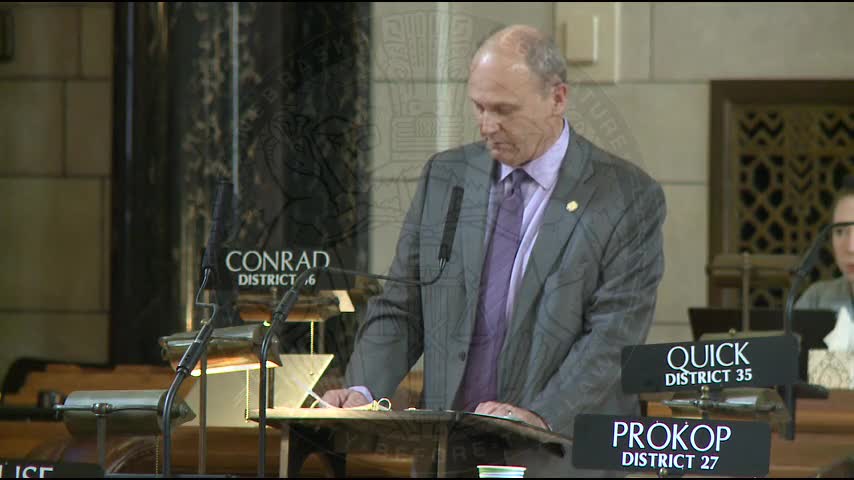
Senate votes to keep SNAP gross‑income limit at 165% of poverty, averting cut for thousands
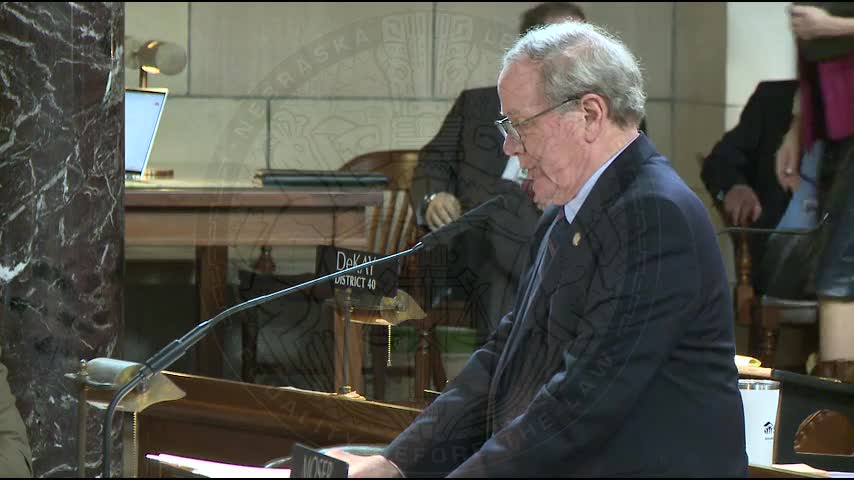
Senate modernizes DOT notice rules, raises legislative consent threshold for building projects
